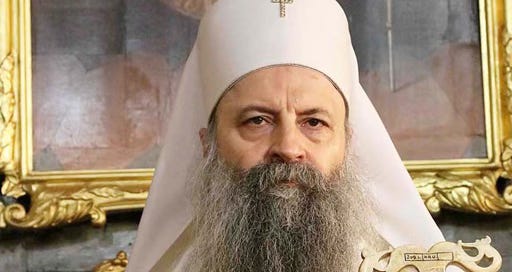Balkan Orthodox leaders react to Zelensky’s Russian church ban
by Andreja Bogdanovski, Marian Chiriac
Orthodox leaders across the Balkans have been closely following and responding to the developments involving the Ukrainian Orthodox Church.
In a bid to strengthen Ukraine’s “spiritual independence,” President Zelensky signed a law last week that outlaws the functioning of the Russian Orthodox Church in Ukraine. The …
Keep reading with a 7-day free trial
Subscribe to Divine Diplomacy to keep reading this post and get 7 days of free access to the full post archives.





